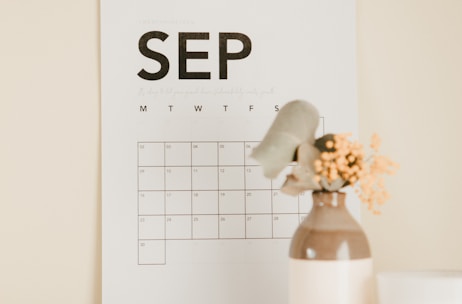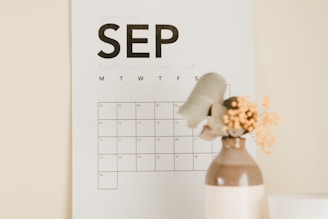National Preparedness Month
Ensuring You're Ready for Any Emergency
9/2/20233 min read


September marks National Preparedness Month, an annual reminder for all Americans to ensure they have plans and supplies in place in the event of an emergency. From natural disasters like hurricanes, floods and wildfires to potential health crises or civil unrest, taking proactive steps now can help you and your loved ones stay safe should the unexpected occur. From violent climate patterns increasing the frequency and severity of natural disasters, to the ongoing threat of pandemics, acts of violence or cyberattacks, being prepared has never been more important. Most states offer tax breaks and additional incentives that can help stretch the dollar and maximize your preparedness. This month, take time to evaluate your readiness across five key areas.
Make an Emergency Plan
The first step is sitting down with your family or household members to discuss and document an emergency plan. Discuss how you will communicate and reunite if separation occurs during a disaster. Having a plan in place can help reduce stress and confusion when seconds count. Designate an out-of-state emergency contact person that scattered family members can call to check in. Also identify emergency meeting locations, one within your immediate neighborhood and another further away in case you can’t return home. When making your plan, consider any unique needs of elderly, disabled or medically dependent family members that may require additional assistance in an emergency. Make sure to include details for caring for pets as well. Practice your plan periodically to identify any gaps and ensure everyone remembers evacuation routes and procedures.
Assemble Emergency Supplies
No one knows exactly what you may need in an emergency, so having essential supplies on hand is crucial. Assemble an emergency supply kit and keep it in an easy-to-access location like your basement, garage or near an exit. Your kit should contain at least a three-day supply of non-perishable food and bottled water (one gallon per person per day). Be sure to include any special dietary needs as well. Other important supplies include a battery-powered radio, flashlights, extra batteries, first aid kit, medications, copies of important documents in a waterproof container and cash. Don’t forget supplies for infants, the elderly or pets. Replenish food and water supplies every six months and batteries yearly. Consider additional supplies for threats specific to your area like blankets, warm clothing or a portable charger for power outages. A well-stocked kit can give you valuable peace of mind during any crisis.
Strengthen Your Home
Taking steps to safeguard your home is another important preparedness task. Install smoke alarms on every level of your home, including bedrooms, and test them monthly. Replace batteries twice yearly. Consider installing a fire extinguisher in your kitchen and teaching family members how to use it properly. Properly reinforcing your roof, trimming trees and clearing rain gutters can help reduce damage from heavy winds and rains during hurricanes and monsoons. Secure any loose objects like patio furniture or decor that could become flying projectiles. Install storm shutters or board up windows if in a hurricane-prone area. Know how and when to turn off gas, electricity and water at main switches or valves in case of damage to pipes or wires. A portable generator allows you to operate essential appliances and medical equipment during extended power outages, but only use it outdoors and properly install a transfer switch first.
Learn Lifesaving Skills
Taking time to learn basic first aid and emergency response skills can help you assist others and take action until professional help arrives. Sign up for first aid, CPR and disaster preparedness classes offered by organizations like the Red Cross, fire departments or community centers. Understanding how to treat bleeding, sprains, possible fractures, heat stroke, hypothermia and other common medical issues in disaster scenarios is invaluable. Consider getting trained in wilderness rescue if you live in a rural area. Educate yourself on threats specific to your region like hurricanes, earthquakes, floods or wildfires. Know local evacuation routes and where to find shelter. Staying informed on how to respond can help reduce risks to yourself and others during time-critical situations.
Plan for Business and Financial Continuity
If disaster strikes, will your business or income be interrupted? Take steps to plan for continuity of operations and finances as well. Critical business records should have electronic and off-site backups. Consider creating a virtual office capability if the physical location is not usable. Make sure to have important client and vendor contact lists stored securely off-site. Develop an emergency communications plan to check on employees and update clients. Ensure your business has adequate insurance coverage for property damage, liability and income loss from closures. On a personal level, store important documents like birth certificates, insurance policies, bank and investment account information in a safe, accessible location. Planning now can help minimize financial impacts from lost revenue or wages due to a disaster.
Being prepared takes time but provides priceless peace of mind when disaster strikes. This month, take important steps to ready yourself, your family and your livelihood for life's uncertainties. A little preparation goes a long way to help you weather any emergency safely.
Thanks for reading! Get Prepped!
